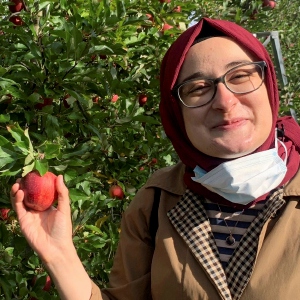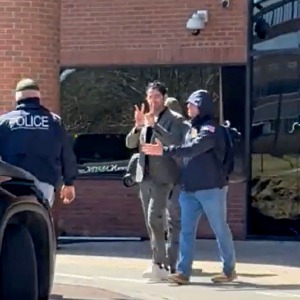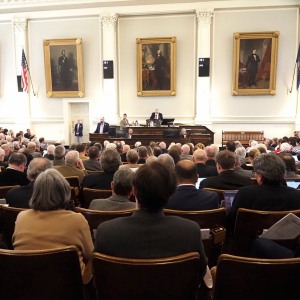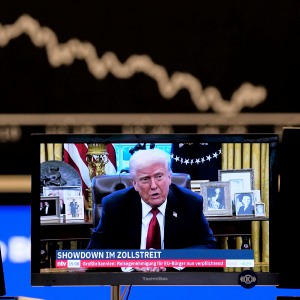Column: Planning local celebrations of the nation’s 250th birthday
| Published: 04-18-2025 5:26 PM |
Polarization. Fear. Uncertain future. Rising prices. Politics affects nearly every aspect of daily lives. Neighbors suddenly in conflict with one another. In some communities, families focus on subsistence, but they can’t escape the larger turmoil. Am I writing about today?
No, I am writing about the late 1700s in Colonial America. There were factions such as the American separatists, the British loyalists, French Canadians, and many indigenous Nations. There were not just conflicts with England. In what is now Vermont, settlers were revolting against the rule of the Colony of New York, a revolution within a revolution. Many and varied conflicts and alliances occurred between and among the diversity of Native populations and the immigrants from Europe, whether Dutch, French or English. All this political turmoil led to riots such as in 1770 with the Boston Massacre and eventually the Revolutionary War that ended in 1783 with the signing of the Treaty of Paris granting the American colonies independence.
Plans have started for commemorating in 2026 our nation’s semiquincentennial, the 250th birthday of the signing of the Declaration of Independence on July 4, 2026. We have a critical opportunity before us as a nation and in our communities.
I was in grade school during the Bicentennial in 1976. I have many fond memories of multiple celebratory events and historical reenactments that took place such as chasing the Bicentennial train.
Fifty years later in 2026 our understanding of history has changed. We have a more in-depth understanding of the role of ordinary people in our history and society, their contributions and impacts. We also have a fuller understanding of who our people in history were, whatever their gender, ethnicity, place of origin and other factors of their diversity. As the towns around our nation and in the Upper Valley plan their special events for 2026, this is a time to both celebrate and reflect that can include our updated understanding of who we were in history.
Our commemoration events can also be an opportunity to share who we are today and how we got here. We can use our commemoration events as one way to build a shared and caring community.
In a time when there is much to complain about that is adversarial, or simply seems to be going in a chaotic direction, reaching out to our neighbors for something positive might help move us towards a healthier outcome. Two recent examples come to mind. First were the many neighbors who helped in the dire emergencies many residents and businesses faced during the extreme floods and storms in Vermont particularly. Second is the shared celebratory experience of the solar eclipse in April 2024, when many remarked how patient and kind visitors and residents alike acted. Preparations for and participation in multiple events during the Revolutionary commemoration period now into 2026 and on into 2027 could take place in the same spirit.
The Town of Hartford has formed a committee to organize events and activities for the 250th commemoration. The Hartford American Legion, libraries and other organizations are joining the effort. The Hartford Historical Society is hosting a 250th Commemoration calendar of events.
Article continues after...
Yesterday's Most Read Articles
 Majority of Bradford, Vt. firefighters resign to protest Selectboard’s management
Majority of Bradford, Vt. firefighters resign to protest Selectboard’s management
 On anniversary of mass arrests, pro-Palestinian protesters erect tents in front of Dartmouth administration building
On anniversary of mass arrests, pro-Palestinian protesters erect tents in front of Dartmouth administration building
 Residents disappointed Canaan’s Goose Pond won’t be full in time for summer
Residents disappointed Canaan’s Goose Pond won’t be full in time for summer
Your town might also be planning events. Ask at your historical society, your town hall and your other town organizations. Check out resources for all the states through the American Association of State and Local History at aaslh.org/programs/250th/.
And we can all pause for a commemoration on April 18 and 19 for “Two Lights for Tomorrow.” This event marks the 250th anniversary of Paul Revere’s ride. Although his communication efforts were not the longest and most effective in the time period, Revere’s ride was immortalized by Longfellow’s famous poem. And we use this anniversary and this event as a uniting call to action today for all citizens, no matter where you are, to commemorate and remind ourselves that our history is about working together for a better tomorrow.
Think about this. Be a part. Volunteer to take on a small role. Be civically engaged. Get the young people in your life excited about history. We have many resources and organizations in the Upper Valley who can take part. We as a society need to understand our history in order to understand how we got to where we are today. Looking at the founding years of our country’s history is one place to focus and guide our young people to a better understanding of America and a more informed future for decisions affecting the earth.
Gwen Tuson lives in Hartford.






 Editorial: Vermont judge defends free speech
Editorial: Vermont judge defends free speech  Editorial: Free speech detentions reach into Upper Valley
Editorial: Free speech detentions reach into Upper Valley Editorial: New Hampshire budget shortfall is a crisis of Republican design
Editorial: New Hampshire budget shortfall is a crisis of Republican design Editorial: Time is running out for American democracy
Editorial: Time is running out for American democracy
